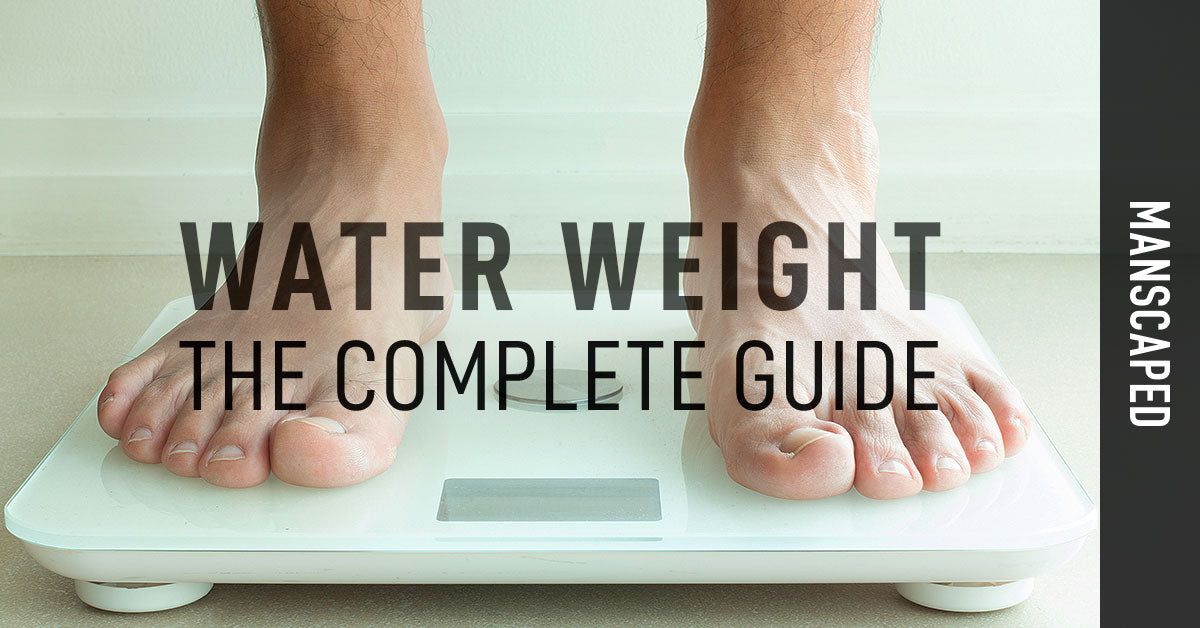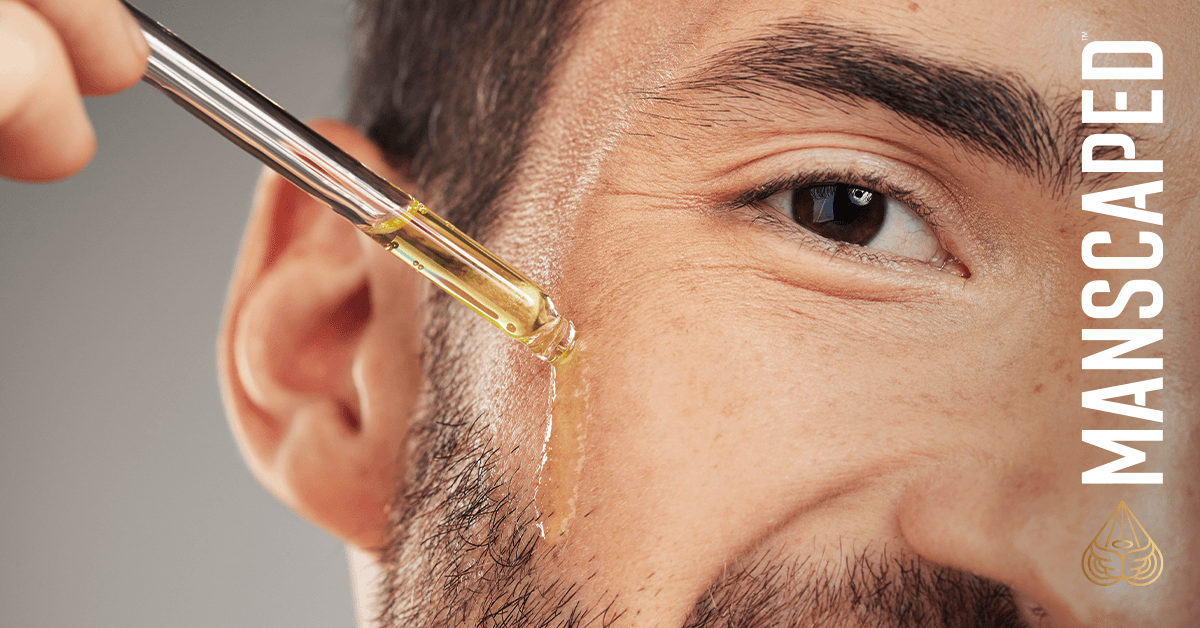
"Water weight" is a term many of us have heard of, but do you know what it really means? It's often used when people are trying to lose weight (or, on the other side of things, when people are mysteriously gaining weight). Someone might tell you, "You didn't really lose five pounds; that's just water weight." On the other hand, if you've suddenly gained an influx of poundage that you can't explain, you might try to convince yourself that it's just water weight. Maybe it is, or maybe it's those late-night runs to your local burger joint that have contributed to you packing on the pounds. With this in mind, let's explore a little bit more about water weight, shall we?
What is water weight, anyway?
In short, water weight occurs when our cells and the areas around the cells store excess water. While the cells do swell a little, most of the swelling occurs in the areas surrounding the cells; this is why you might see parts of your body that are prone to swell up to get a little bigger. Ankles, for example, are known to show signs of water weight when the area around the cells starts to store excess water.
Where does water weight come from?
Water weight can come from various sources, but often, it happens when a person is filling themselves with too many carbs. Why? Because carbs are converted to energy (in the form of glucose), but if you're eating more carbs than you're burning off, the body stores them as fat to be used later. While your body is converting the carbs into fat, it also retains water. According to Paleo Leap, your body needs three to four grams of water for every single gram of carbohydrates it needs to process. If you're burning off all the carbs before they turn into fat, your body doesn't need the excess water; however, if you're eating more carbohydrates than your body needs, you're going to store both fat and excess water.
According to Healthline, "The dietary guidelines recommend that carbs provide 45 to 65 percent of your daily calorie intake." Of course, the higher side of that would be for people who are physically active and will readily burn off the carbs before they turn into fat. To translate this into real numbers, if you consume a 2,000-calorie diet, you should be eating between 225 and 325 grams of carbs per day, but if you're not an active person, you should aim for the lower end of that scale. People trying to lose weight may see faster results by consuming only 50 to 150 grams of carbs.
What tends to happen, however, is that people consume more carbs than their bodies need. Many people might be in the 60 to 65 percent range of carb intake without accompanying their food consumption with adequate exercise amounts. Carbs are converted into fat, and the body retains water for each gram of carbs that the body didn't use.
Salt is another culprit that contributes to water weight because it is always trying to retain the same salt-to-water ratio. If you take in a bunch of extra salt, the body will automatically begin to retain water as a means of preventing dehydration.
Other factors that might be contributing to your water weight include:
- Age
- Sex
- Stress
- Hormone levels
Of course, every person is different, and if you're unsure what may be causing your water weight—or if water weight is the issue in your weight loss or gain—it's always best to consult a doctor's advice before moving forward.

Is water weight bad for you?
There's a difference between the water your body needs to ensure your organs function properly and water weight, which is simply the excess water stored in the body during the conversion of carbs to fat. The former is essential for the body. In fact, "Water normally makes up 50 to 60 percent of an adult's total body weight," according to Medical News Today. That's the "good" water that doesn't contribute to weight gain. On the other hand, water weight is the amount of water stored in the body above and beyond the amount needed for proper organ function. Water retention can account for as much as nine pounds of a person's weight fluctuation from day to day. While pregnant women are often at the higher end of that scale, women who are not pregnant and men can also experience extreme weight fluctuations from one day to the next solely because of water weight.
Unlike the majority of water in your body, you don't need water weight. While it's not necessarily bad for you, it can cause bloating, swelling, and general discomfort. Typically, water weight goes away on its own; however, severe water retention can signify more serious situations, such as kidney disease.
What causes water weight to disappear before anything else?
Water weight will always be the first thing to go before fat because you can easily sweat it out in the sauna or while you're working out. You don't have to burn it off like you do fat; it will just disappear through your pores. Fat, however, becomes one with your body, meaning you have to work at making it go away through proper diet and exercise.
There's another reason water weight tends to disappear before other weight-inducing factors: when people are weight-conscious, they tend to eliminate certain foods (such as carbs) from their diets. When the machine that causes the water weight to build up in the first place is eliminated, there's no need for the body to retain water to convert carbs to fats because the process becomes unnecessary.
The difference between water weight and weight-weight
It's not always easy to tell if the weight you're losing is attributed to water weight or fat loss. If you're losing more than a couple of pounds a week, it's probably water weight that you're losing. But, rest assured, that's nothing to get discouraged about. A loss of water weight, especially when you experience it consistently over the course of a few weeks, can mean that you're altering your diet by reducing your carb and salt intake. Both of these are positives, which can ultimately lead to a healthier, happier body overall.
The key is to look at how much weight you're losing at a time. Dramatic drops in weight can be unhealthy, but you may just be losing a lot of water weight, which is not unhealthy. If you're a fairly average-sized person, and you're seeing a lot of dips in the scale for the first few weeks of monitoring your weight, it's more than likely water weight that's going away. Over time, with a healthy, consistent routine of a positive diet and exercise regimen, you'll begin to see the fat disappear, too.

Can you lose water weight?
Of course you can lose water weight. The important thing is to change your diet and exercise routine, so you're not accumulating water weight in the first place. Naturally, that's easier said than done (like most things in life, right?), so we've found a few tips that can help you wade your way through the water weight gain ebbs and flows:
1) Add cardio to your workout routine
As we mentioned above, you can easily sweat out water weight when you get your body going. Thirty minutes of cardio is a great way to get your heart rate going while burning fat and getting that pesky water weight off your back (or stomach, ankles, or thighs).
For best results, consider doing cardio before breakfast so you can use the fat and excess water your body has stored while you were sleeping. If you live in a place that's too hot, a night run is a great way to speed up your metabolism. And, don't forget to pace yourself. Wait 20 minutes after your workout and cool down is complete before you eat.
2) Sit in a sauna
Saunas are inherently designed to help you sweat out water and the toxins that reside within your body. Don't sit in a sauna too long if you're still new to the experience; it's totally okay (and highly recommended, in fact) to take this experience in small chunks, acclimating yourself to the heat bit by bit. If you're only comfortable sitting in a sauna for 10 or 15 minutes at first, that's completely fine. The longer you work up to this water weight-losing endeavor, the longer you'll be able to stay in the sauna.
Consider coming in and out of the sauna for periods of rest. Maybe you do 15 minutes in the sauna, then step out for 15 minutes and go back in. This is a great way to give your skin and body a little rest while pushing forward with your ultimate goal of getting healthier and losing the water weight. When you're finished sweating it out, be sure to shower with a masculine wash that'll take care of your skin and body.
3) Wear a sweat suit
It's natural to sweat when you work out; in fact, that's one of the benefits. But, most people think they should wear fewer clothes to help them stay cool when they're sweating when, in reality, a sweatsuit can help foster all of that water weight right out of your body. A sweatsuit does exactly what it's supposed to do—help you sweat while you're getting your heart rate going and burning off those fat cells and excess water weight.
4) Minimize your salt intake
As we mentioned above, your body automatically responds to uptakes in salt by retaining water to counteract the substance and keep itself from dehydrating. After all, salt is a drying mechanism that can leave your body in a world of hurt if there's not enough water to go around. High sodium levels can lead to high blood pressure and other health concerns that can have grave results if left unattended.
As an easy way to start your journey, don't add salt to your meals. If you're in the habit of salting your entrees, this may be difficult at first, but your efforts will have positive effects shortly. Once you get out of the habit of adding salt to your foods, it'll become easier to stop cooking with this ingredient, too. After a while, your body won't crave the taste of salt, and you may be able to put down those potato chips and other salty foods that tend to increase water weight gain.
Try to limit your consumption of processed and packaged foods, too. Many of these items are wrought with salt, which is used as a preservative that helps lengthen shelf-life for many of the foods people eat in their offices and at home every day. By eating freshly made foods, you can control the amount of salt (and other less-than-optimal ingredients) that go into your bowls.
5) Give your body some asparagus
According to Health.com, "Asparagus contains high levels of the amino acid asparagine, making it a natural diuretic. In other words, eating more of the spears can help flush excess fluid and salt from your body." This popular produce item can help combat bloat and ensure your body has everything it needs to flush away excess water.

6) Get more potassium
Potassium helps the body counteract salt and reduce bloating. While you can purchase supplements that help the body bolster its potassium intake, there are also plenty of fruits and veggies that do this duty very well. Here are a few ideas to help you get your at-home menu started:
- Bananas. Bananas are super high in potassium, and they can obviously be eaten all by themselves. Grab one as your running out the door, or stick it in a blender to create an awesome banana smoothie that'll get you through the morning without obnoxious hunger pangs. If you have bananas that you might not eat before they go bad, consider freezing them while they're still good. This makes for a great addition to any smoothie, adding texture and preserving the flavor of this delicious produce.
- Cooked spinach. Spinach is rich in vitamins A and E, as well as fiber, potassium, zinc, calcium, and iron. Consider tossing it in the skillet with a bit of extra-virgin olive oil, garlic salt, and parmesan cheese for a side dish that's sure to please.
- Cooked broccoli. Along with vitamins C and K, broccoli contains a great amount of potassium. It's also filled with fiber, iron, and a lot more protein than most people give it credit for. Try roasting your broccoli florets with a garlic clove and some olive oil to make an amazing side dish (or Netflix-binge-dish) that'll make your body happy while flushing the bad stuff out of your body.
- Sweet Potatoes. Containing about 448 mg of potassium per potato, these little root veggies have found their way into the hearts of many people who suffer the effects of water weight gain. If you don't want to eat sweet potatoes in their raw form, try a recipe that integrates them into a cheesy quiche so you can optimize the good things these ingredients bring to your breakfast or lunch table.
- Mushrooms. White mushrooms measure in with a potassium rating of 57 mg per 1 medium (18 g) mushroom, and there are plenty of ways to play around with this food. Use it as a topping on pizza (but recognize that you'll be taking in carbs if you use a traditional crust), or try it out on salads. They also make for a mighty tasty side dish when paired with unsalted butter, olive oil, garlic, and herbs.
- Peas. Peas offer a whopping 354 mg of potassium per cup. They're super easy to make in a million different forms, and if you don't have the patience to deal with peas when they're in their pods, you can easily buy frozen peas that'll give your body a boost. Try making Italian peas with your next meal. All you need is a bit of onion, chicken stock, and garlic to make them taste amazing.
- Cucumbers. Try starting your meal with a cucumber salad that'll add good water to your body without forcing it to reserve excess water it doesn't need. Cucumbers are great all by themselves, but when you add a little vinegar and onion, they really come alive.
Be advised that if you have any kidney problems, high-potassium foods might not be the best option for you. Be sure to check with your doctor if you have any health issues that should be monitored by a medical professional.
10.30.19
Share

Featured Articles
- Your Favorite Ball Deodorant. Now with a New Scent: Perservere.MANSCAPED® + TCS for Testicular Cancer Awareness MonthIntroducing The Lawn Mower® 5.0 Ultra TCS Special Edition and TCS Ball Hero BundleThe Dome Shaver™ Pro vs. The Dome Shaver™ Plus: Which Should You Choose?The Chairman™ Pro vs. The Chairman™ Plus: Which Should You Choose?



